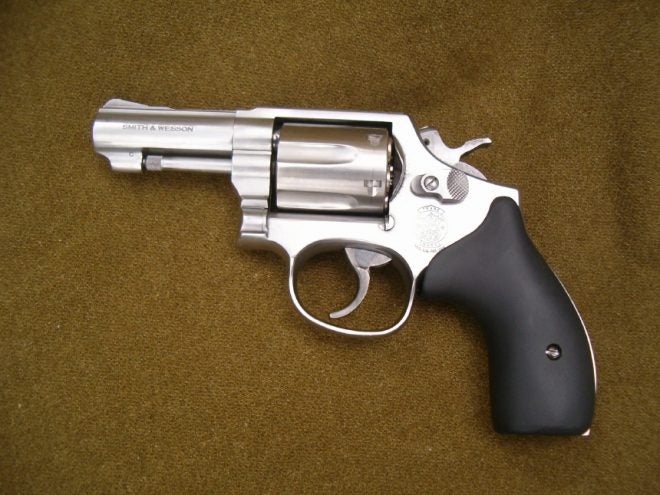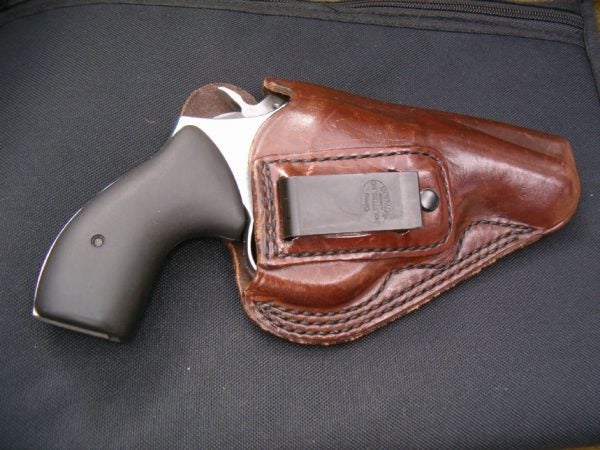
For revolver fans the Smith & Wesson K-Frame is a time-tested choice. These medium frame guns have served as home defense and carry guns for over 100 years and counting.
The “service revolver” sized K-frame has several advantages over the smaller “back up gun” sized J-frame revolvers. The K-frame guns have six shots to the J-frame’s five, better triggers, a larger grip, and typically have longer barrels. While the average J-frame gun sports a 2” tube the standard barrel length on the K-frame is usually 4”. The downside, of course, is that the larger K-frame is harder to conceal than the snub-nose J-frame guns.
That brings us to a popular choice among revolver aficionados: The 3” barreled K-frame. The one-inch shorter barrel makes the gun easier to conceal while giving up only a little bit of velocity from the 4″ version. The 3” K-frame also retains the full-length ejector rod found on the 4” barreled gun which allows for a full ejection stroke to more reliably kick the empty cases out of the chambers. While there are also 2” K-frame models, they use a shortened ejector rod similar to that on the 2” barreled J-frame guns.
Among the 3” K-frames the Model 65 has the unique combination of features that make it, in my opinion, the best of the breed. The Model 65 is chambered in .357 Magnum which gives it greater versatility than the .38 Special guns including the Model 10, Model 15, and Model 64. The 65 is made of stainless steel which is more resistant to wear and moisture than the blued finish of the Models 10, 13, 15, and 19. This is especially important for concealed carry where the gun can come into contact with body sweat. The Model 65’s fixed rear sight does not have sharp edges to catch on clothing or skin while also being less prone to breakage from rough handling than the adjustable target sights on the Model 15, Model 19 (both blued) or the stainless steel Model 66.
For shooting the 3” Model 65 points well with good balance and, in my experience, is as accurate as the 4” barreled models for all practical purposes. For carry, it’s amazing the difference losing an inch of barrel makes when carrying a 3” gun instead of a 4” gun. I can carry my Model 65 3” in an inside the waistband Alessi Talon holster much more comfortably than I have ever been able to carry a 4” revolver in the same spot. Nestled in front of my right hip the gun disappears under a T-shirt.

For all its advantages there is a drawback to the 3” Model 65: They are hard to find. Unfortunately, this model fell victim to the cutbacks in the S&W K-frame line over the years along with many other classic K’s. While the company currently offers several .38 Special and .357 Magnum blued revolvers in their “Classics” line, none have 3” barrels. The closest is the regular production Model 66 .357 Magnum with a 2.75” barrel but this revolver lacks the full-length ejector rod of the 3” gun, and while stainless steel, features an adjustable target sight instead of the fixed rear sight of the Model 65.
As a result the 3” Model 65 has a bit of a cult following among those who favor the wheelgun. Those who have them tend to keep them and those who want them are forced to haunt used gun cases in local shops or pay scalper’s prices on the auction sites.